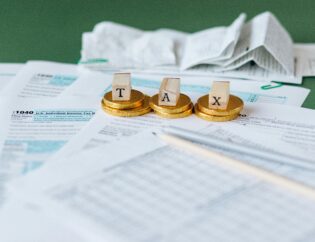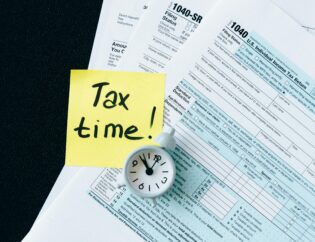
Knowing which tax records to keep and for how long is key to staying organized and prepared. Discarding them too soon can create problems if the IRS requests information, while holding onto everything indefinitely can quickly lead to paper overload. Generally, taxpayers should retain records until the applicable period of limitations expires.
IRS Record Retention Guidelines
Period of Limitations for Tax Assessment
- 3 Years – The IRS generally has three years from the date a return is filed to assess additional taxes. Returns filed before the due date are considered filed on the due date.
- 6 Years – If unreported income exceeds 25% of gross income on the return, or if unreported foreign financial assets exceed $5,000, the IRS has six years to assess additional tax.
- No Limit – There is no statute of limitations for fraudulent returns or failure to file a return.
Period of Limitations for Refund Claims
- 3 Years or 2 Years After Tax Payment – A claim for a refund must be filed within three years from the original return filing date or within two years from the date the tax was paid, whichever is later. If no return was filed, the claim must be made within two years of tax payment.
- 7 Years – Claims related to bad debt deductions or worthless securities losses must be filed within seven years of the return due date.
Records to Retain
Property Records
Keep documents related to property ownership, including purchase price and improvement costs, until the limitations period expires for the year in which the property is sold or otherwise disposed of. These records determine the basis for calculating gains or losses.
Healthcare Insurance Records
Retain records of healthcare coverage for yourself and dependents. If you claim the premium tax credit, keep documentation of premium payments and any advance credit payments received through the Health Insurance Marketplace.
Business Income and Expenses
Businesses must maintain records that clearly reflect gross income and expenses. Documentation should substantiate reported figures. Employers must keep employment tax records for at least four years after tax payments are due or made, whichever is later.
Capital Gains and Investments
Keep records of investment income, including stock purchases, interest, dividends, reinvestments, and sales, for at least three years after the investment is sold. These records help establish the cost basis and calculate capital gains.
Tax Returns
Retain prior years’ tax returns to support future filings, amended returns, loan applications, and tax withholding estimates. They may also be needed if records are lost.
Properly Disposing of Records
Avoid throwing away confidential documents in the trash or recycling bin, as identity thieves can often gather personal information from discarded papers, even if torn up. To protect your privacy and prevent identity theft, it’s best to shred any unnecessary tax records.
Best Practices for Financial Record Management
Digitize Important Documents
Store electronic copies of critical records for easy access and security.
Use a Consistent System
Organize financial records by year and category for streamlined retrieval.
Review Annually
Conduct an annual review to determine what can be discarded based on IRS guidelines.
Properly managing and organizing your financial records not only simplifies tax filing but also ensures you’re prepared for any future audits or inquiries. If you need help with record keeping or have questions about the tax process, reach out to L.V. Browne, CPA, for expert guidance or schedule a free consultation.










